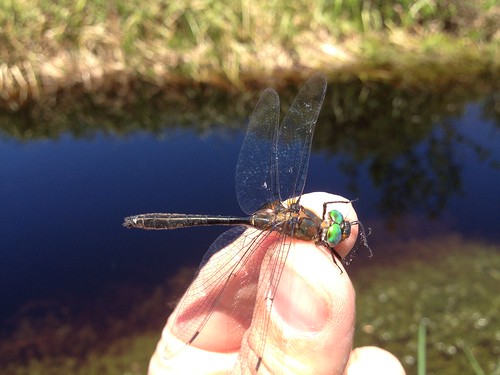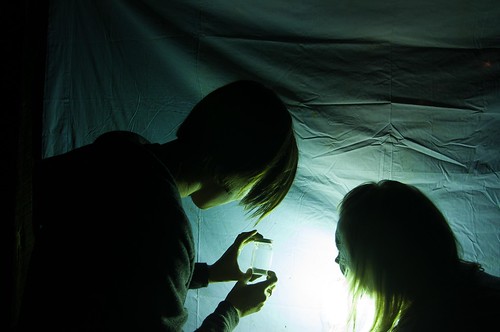
[Updated 23 Aug 2023: Fixed some broken URLs, updated a couple policies.]
I get lots of questions about how to collect insects legally in Pennsylvania, especially when students are enrolling for ENT 532. I think it’s about time I post what I know—at least what I think I know—in case the information is useful to others. Note that this info is structured for students interested in general collecting, mainly for the collection requirement in ENT 532, and the reader should contact relevant agencies about research opportunities and permits. See also Chris Grinter’s excellent web page on permits; it’s a great starting point for information.
(1) You need a fishing license to collect aquatic insects, regardless of where you collect them (i.e., even on private land if it’s not your year-round residence!) Know that before you start collecting anywhere in PA! As the Pennsylvania Fish and Boat Commission states (see this information sheet (PDF)):
Pennsylvania law defines “fishing” as the act of angling, or to catch, take, kill or remove or the attempt to catch, take, kill or remove from any waters or other areas within or bordering the Commonwealth any fish by any means or method for any purpose at all.
PA law also states that “… fishes include aquatic macroinvertebrates” (also in information sheet (PDF)). If you want to collect Odonata (up to 50 larvae per day), Ephemeroptera, Dytiscidae, Hydrophilidae, Haliplidae, etc. you need a fishing license. Also note that if you collect in certain streams at certain times of year you need a valid trout permit in addition to your fishing license. More information is available at the PA FBC website.
(2) Be mindful of federally and otherwise protected species! Check state (aquatic species <= need new link for this information!) and federal listings and understand that you can’t collect these species without special permits you are unlikely to have. For PA that includes the Rusty Patched Bumble Bee (Bombus affinis), American Burying Beetle (Nicrophorus americanus), and other species that are unlikely to occur here (1, 2, 3, 4) … but you never know!
(3) You can collect on private land, with owner’s permission. This one is easy. You can collect any insect (except see points 1 and 2 above) you want on my property in Pine Grove Mills, or your uncle’s land in Beaver county, or your grandmother’s farm near Lancaster, as long as you’ve been given permission.
(4) You can collect on Penn State property. No one has ever told me no. In fact, they’ve encouraged collecting for the purposes of growing the collection at the Frost and for helping students learn entomology! See the PSU hunting info site for a few maps and a list of rules. If you want to collect in more public places, such as the Arboretum, it’s best to get permission first. Don’t forget to re-read points 1 and 2 above, though.
(5) You can collect recreationally in U.S. National Forests. Don’t forget your PA fishing license for aquatic species, and be mindful of threatened and protected species! Grab your gear and head up to the Allegheny National Forest.
(6) You can collect in Pennsylvania State Forests, with a few exceptions. With points 1 and 2 in mind, feel free to explore Pennsylvania’s State Forests and collect insects! As with Pennsylvania State Game lands (see point 7 below), some types of collecting methods are apparently not allowed under existing rules, including bait traps and collecting plant parts.
(7) You can collect on Pennsylvania State Game lands, with a few exceptions. The State Game Lands rules don’t seem to preclude insect collecting, with the exception of points 1 and 2 above (remember your fishing license!). Some rules apparently impact certain types of collecting, though, and you must be mindful of hunting seasons (e.g., know when to avoid the Game Lands and when to wear fluorescent orange). You can harvest “mushrooms and fruits of berry-producing plants” but you cannot “gather, cut, dig, remove or otherwise injure any plants or parts thereof, including trees, shrubs, vines, flowering plants and cultivated crops”. So, no collecting galls, leaf mines, etc. You also cannot “feed wildlife or place any food, fruit, hay, grain, chemical, salt or other minerals”, so no bait traps. And you cannot “construct, place, maintain, occupy, use, leave or abandon any structures or other tangible property”, which might exclude Malaise, pan, pitfall, and other similar traps from your approach.
(8) You need a permit to collect in PA State Parks. We have an amazing park system in this state, and my impression is that it’s relatively easy to get collecting permits for reasonable educational and research activities. Points 1 and 2 above apply to collecting in state parks, so remember your fishing license! The fishing license alone should allow you to collect aquatic insects without further permitting, but other insects would require permits. See state park rules (PDF). You can also join the Entomological Society of Pennsylvania and get listed on their blanket state parks collecting permit. That’s super easy and cheap! See the DCNR Bureau of State Parks’ contact information to inquire about research permits.
(9) You need permits to collect in National Wildlife Refuges. Permit applications are available on the web. Pennsylvania has several refuges, and points 1 and 2 above still apply. You probably will not be collecting in National Wildlife Refuges for ENT 532.
(10) You need permits to collect in National Parks, and we’d need a MOU to house the specimens at the Frost. There are several National Parks in PA. For ENT 532 it’s best to avoid collecting in these areas.
Did I miss anything? Have any suggestions for updates? Post a comment below!

this is excellent. thank you! 🙂
I saw a dragonfly on my deck that had clear wings except for brown squares in the center of the wings. I searched but could not find an image. Any suggestions. I live in Akron PA.
This was quite helpful. Fulton County is woefully under-surveyed as far as odonata and I would like for next season to check out places besides my own home. I mean, I do what I can at my house, but I am only a very small area of the county and we have a lot of other interesting areas that I could be looking at (state parks, state forests, state gamelands) with habitat I don’t have. Best to be legal.
Really great information! Thank you!